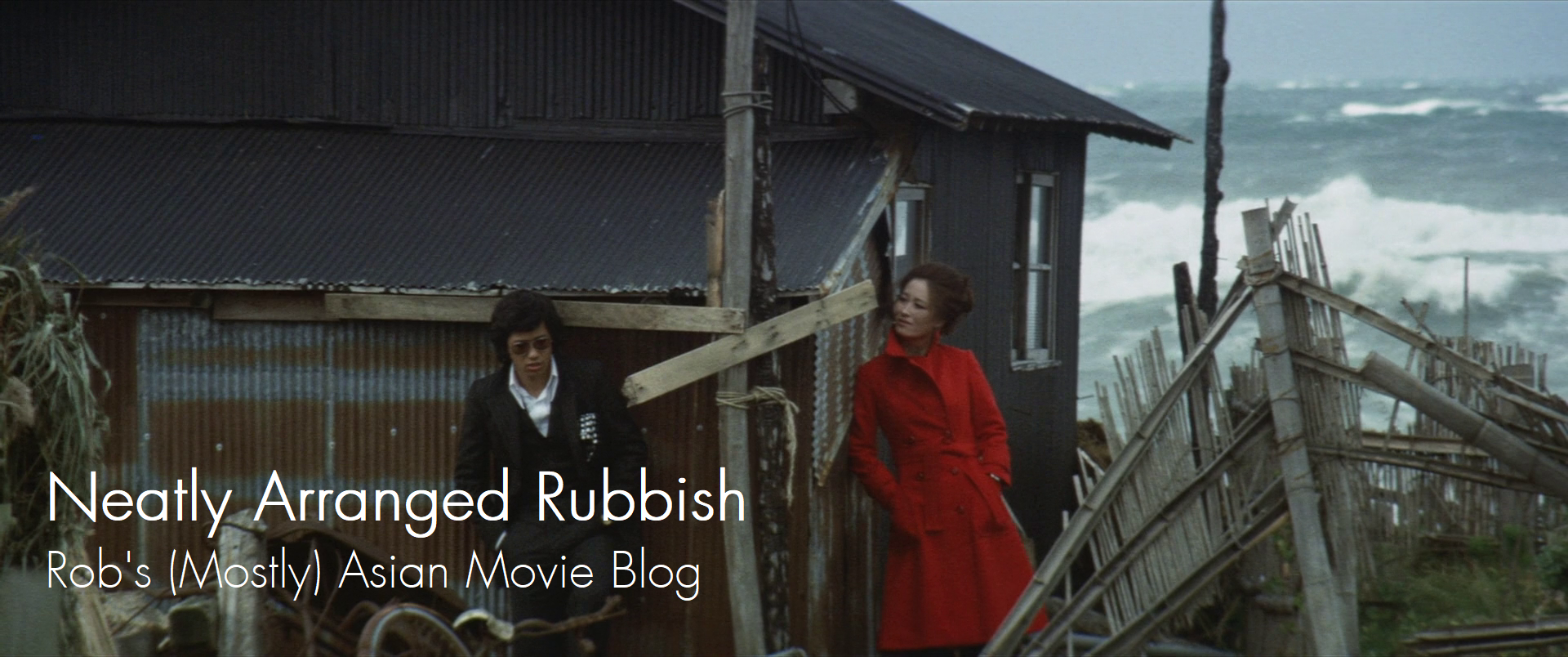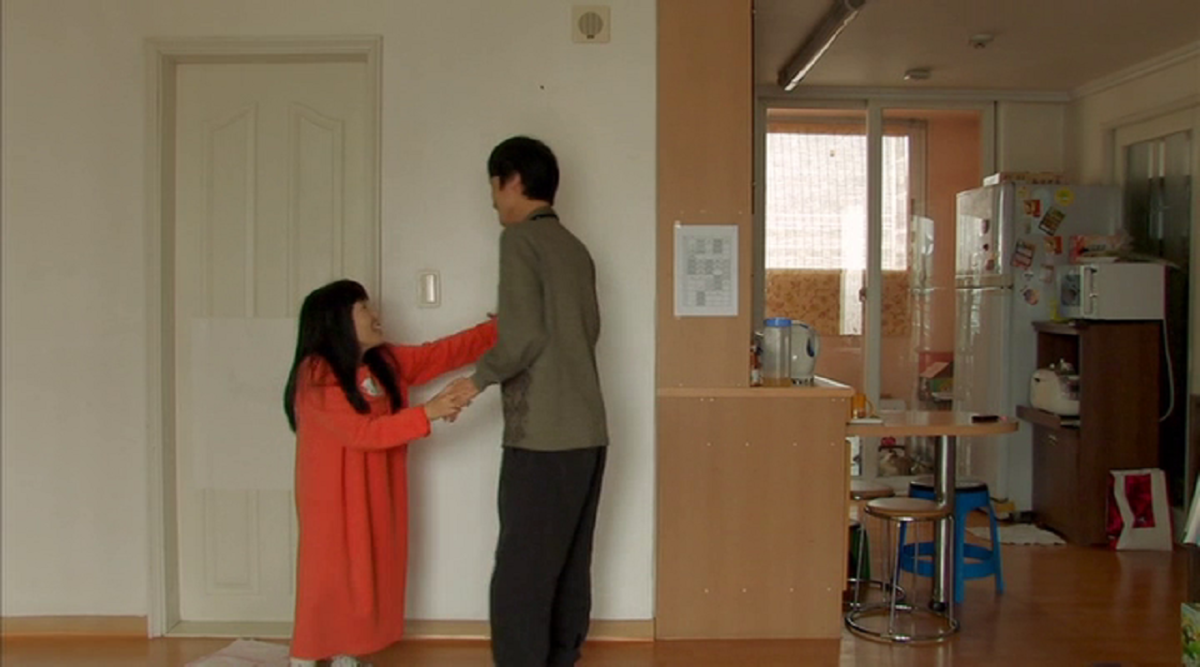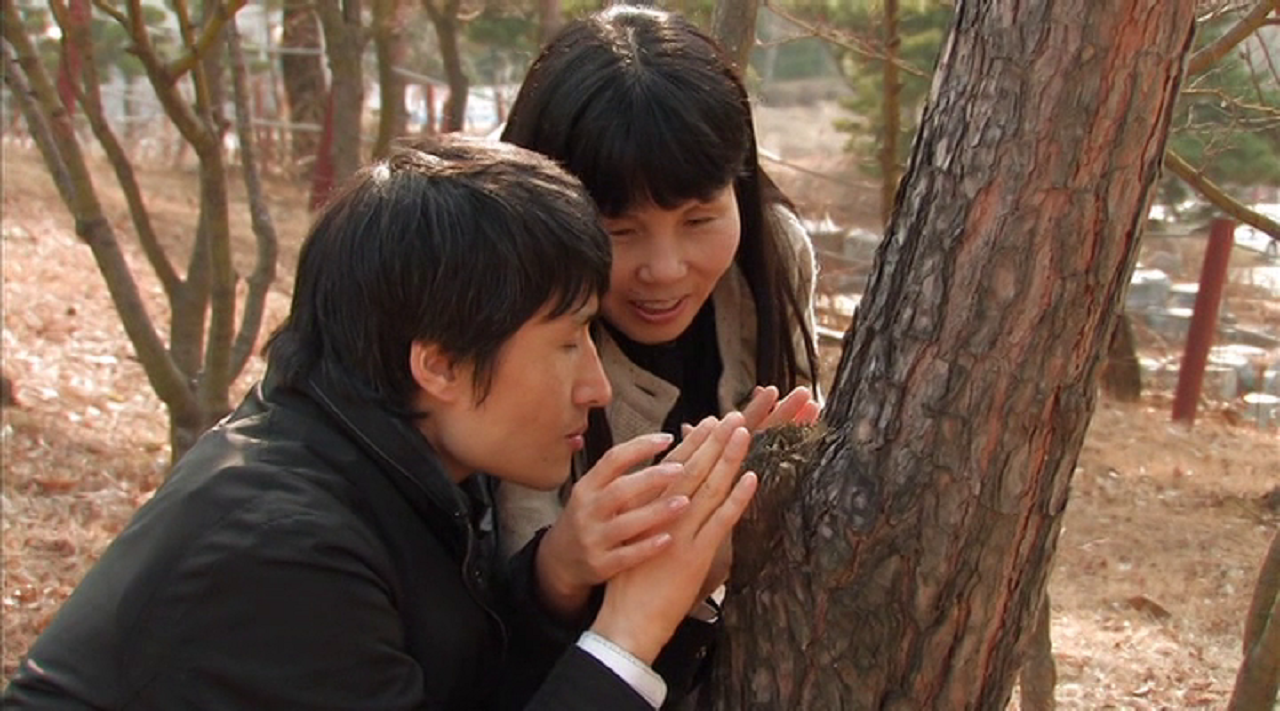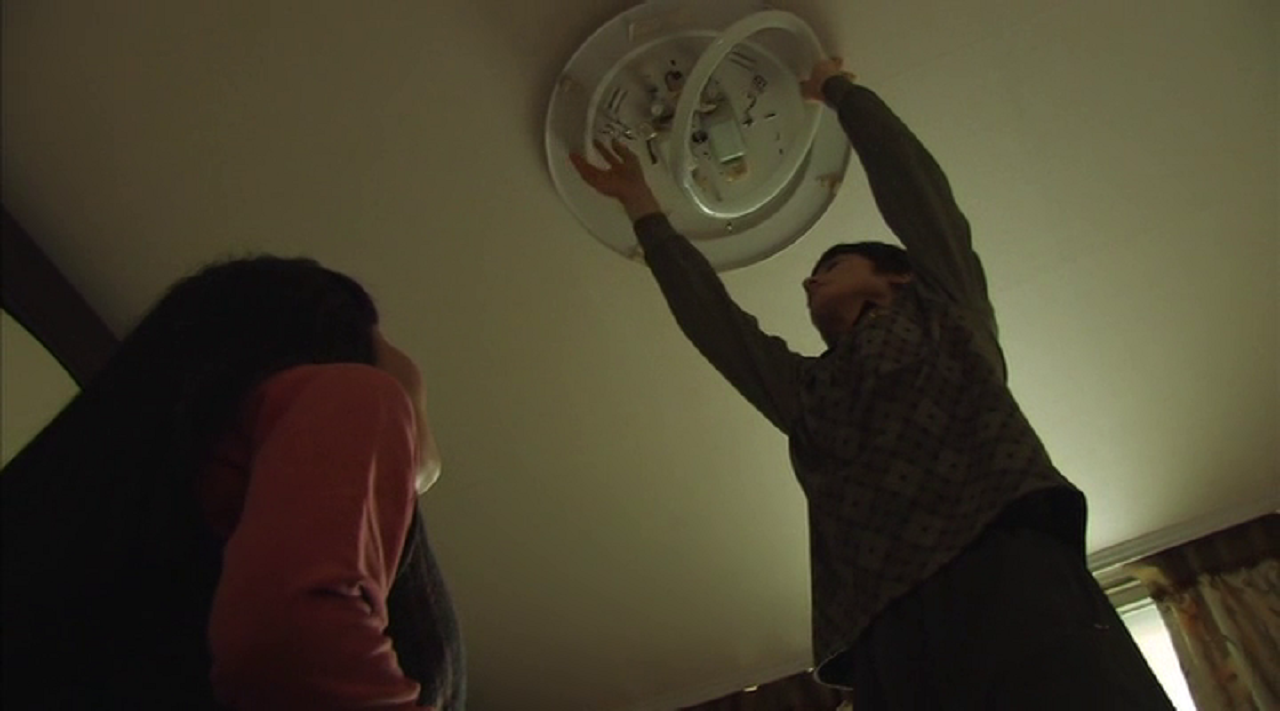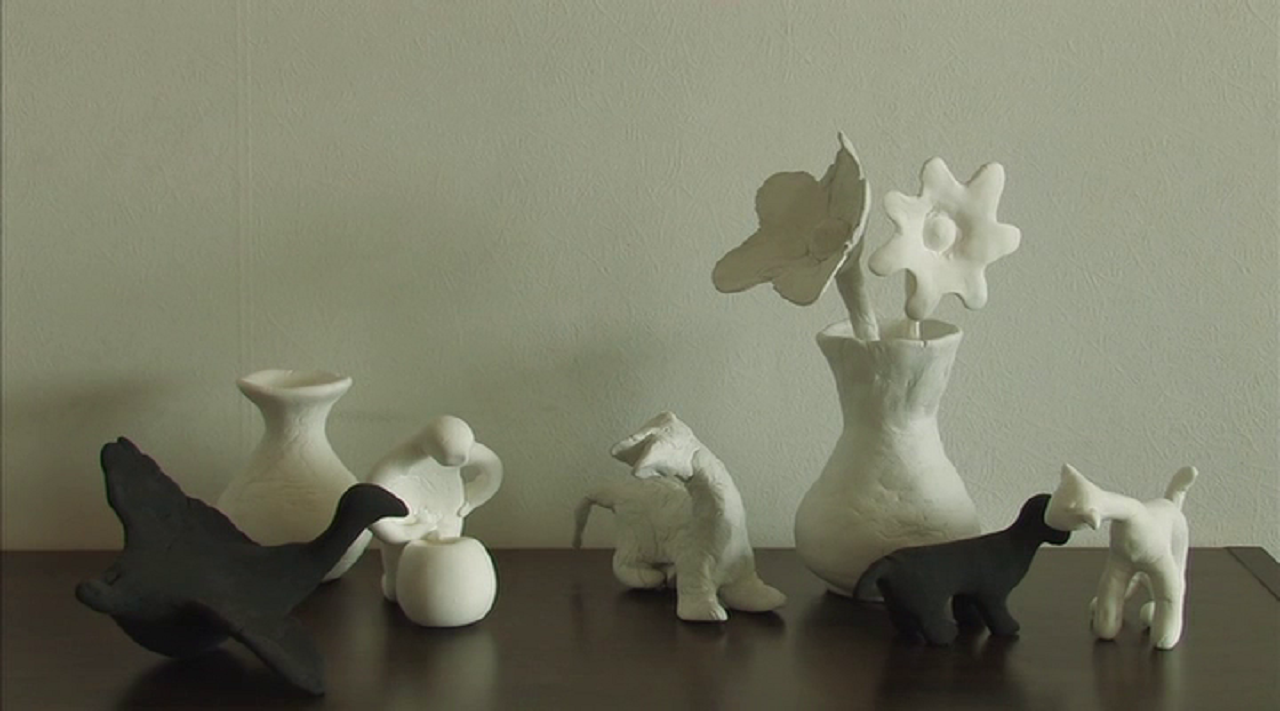Last Updated on October 6, 2020 by rob
A warm and engaging love story in the shape of a fly on the wall documentary about two souls who complement each other so perfectly it’s as if they need no one else. The man, Young-chan, is blind and deaf and his wife who suffers from spinal damage, Soon-ho, is barely three feet tall. But despite his severe disabilities Young-chan can talk and Soon-ho is able to communicate by taking hold of his hands and lightly tapping her fingers on them in a cross between Morse code and a kind of finger Braille. We quickly discover that Young-chan is a sensitive and creative man. He makes figurines of humans and animals, enters an essay writing contest, visits a theatrical troupe who want advice on how to play blind people, sits a Hebrew exam and writes his own Biblical play about the blind. In conversation he’s composed, articulate, funny and seemingly devoid of self-pity. A dignified presence, as you might say. It’s not that he’s never felt down (during a social get together with fellow special needs friends at his home he hints at how depressed he was in his 20’s) but he’s clearly since come to terms with things.
Most of all though, he has Soon-ho constantly at his side. This lady is such an attentive, unfailingly cheery presence she practically steals the show. A scene at home in which Young-chan flirts with Soon-ho as they wash the dishes and then gives her a piggyback into the bedroom is so charming you can quite understand the subsequent envy of one of Young-chan’s friends. Watching Soon-ho sit quietly by Young-chan’s side, tapping gently on his hands as she explains to him how he wasn’t one of the winners in the essay contest he entered, to see her reacting to every flicker of emotion on Young-chan’s face as he absorbs the news is to realise how much she loves him. We learn that the two first met when a fellow blind student of Young-chan’s snuck him out of the dormitory late on a rainy night on a date to meet Soon-ho who was living some distance away.
Imagine that; two boys, both blind, one of them deaf to boot, finding their way out of their residence and through the rain to a distant house so one of them could meet the girl who’d be his future wife. That’s a great tale just by itself and Seung-jun’s film is full of similarly vivid vignettes. A visit to a gusty beach has Young-chan reacting almost with shock as his hand sinks into a rolling wave. “It’s like a fridge”, he exclaims, “A windy fridge!” On a visit to the local park Young-chan shows himself as an inveterate tree hugger. You don’t have to be blind to understand the tactile attraction of trees but you can’t help wondering if the solidity of the thing and its curiously reassuring connection to the earth is a much needed anchor for a man who views himself as an astronaut adrift in space. Not that Young-chan takes it all that seriously. With his arms wrapped firmly around the tree he tells an inquiring Soon-ho, “I’m dating now. Don’t bother us!”
Director Seung-jun breaks up his observational style with evocative cutaways/closeups (a sequence in which Young-chan ponders the feel of raindrops from the balcony of his apartment is really striking) and a sometimes impressionistic sound design that attempts to portray what the outside world might sound like to Young-chan for whom certain noises can register, albeit faintly. Young-chan describes his deafness as like being surrounded by thick fog and as the title Planet Of Snail suggests, the world depicted here is one in which everything moves at a slow pace and the amount of effort required even for the most mundane of tasks – a ceiling light that needs changing which requires a painstaking combination of Young-chan’s height and Soon-ho’s guidance – would likely have most people wanting to curl up in a ball and give up.
Deprived of sight and hearing we gradually understand what Young-chan means when he describes himself as having the heart of an astronaut. Because for him every day is a voyage into the unknown. In the Hebrew exam Young-chan takes, the Biblical play he writes and a discussion about death in which Young-chan ventures the belief that he and Soon-ho will always be together and indeed praying together when death approaches, there’s an implicit religious strand to their lives. Unfortunately this is never explicitly addressed but it would have been fascinating to know just how much Christianity gave Young-chan the courage to overcome the difficulties in his own life.
When the couple visit a blind friend who’s in hospital and in pain after a fall it foreshadows a realisation by Young-chan that even astronauts have to come back to earth. However Soon-ho sounds a cautionary note when she tells him, “You always need to be careful, though you think you know the area well.” But she’s persuaded by friends that Young-chan has to begin to try to make it outside alone rather than her accompanying him everywhere. Questions of mortality are raised, ‘Hopefully you’ll live 10 years longer than Young-chan,’ a friend tells Soon-ho. But nobody knows and the possibility that the worst might happen and Young-chan ends up trying to cope on his own has to be acknowledged.
Soon-ho is pragmatic enough to accept this but when the separation comes – as Young-chan visits a clinic on his own while Soon-ho waits for him at home – it’s a mark of how emotionally invested we’ve become that we share her evident anxiety and are relieved when Young-chan arrives safely back . This sort of push-pull between Young-chan’s eloquent assessment of himself as a voyager liberated from senses constrained by obsession or ego versus the difficulties of everyday life as a blind and deaf man define the film’s dramatic conflict. There’s no solution here but then by definition there can’t be. This is a lifelong struggle and the film’s final shot – an evocative image looking up at Young-chan as he drifts on the surface of the sea with a rope tied around his ankle that stretches back to shore – sort of epitomises the paradox of this brave and likeable man somehow caught between two worlds.
